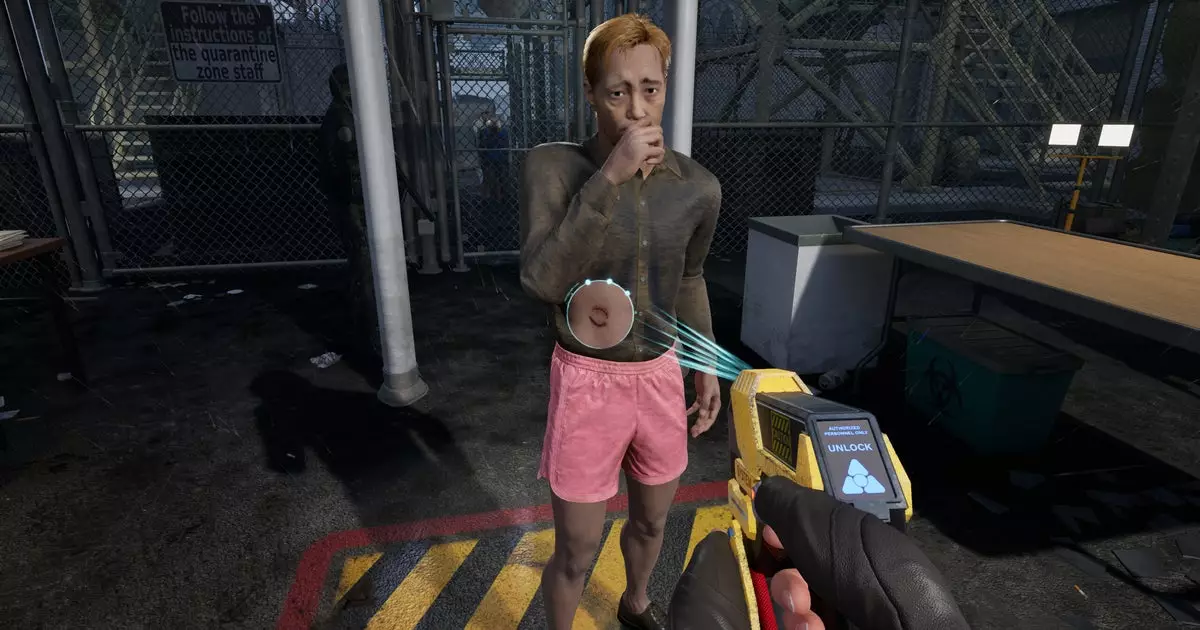In an era where apocalyptic scenarios dominate popular culture, few games challenge players to confront the murkiest aspects of morality quite like *Quarantine Zone: The Last Check*. Set within the crumbling remnants of civilization, this title doesn’t merely throw you into frantic zombie combat; it immerses you in the terrifyingly complex world of checkpoint control, where every decision carries life-and-death consequences. The core mechanic revolves around inspecting refugees and discerning the flawed line between healthy individuals and potential vectors of infection. It’s a stark reminder that survival isn’t just about fighting off the undead — it’s about facing the dilemmas of humanity itself.
What makes this game stand out in its genre is its insistence on moral ambiguity. Unlike traditional zombie shooters that celebrate violence as a clean solution, *Quarantine Zone* forces players to grapple with nuanced judgment calls. Is that trembling, visibly ill person truly infected? Could they just have a cold? Do you quarantine them out of caution or let them pass, risking the spread of a deadly disease? Such questions transcend mortality—they confront our understanding of mercy, pragmatism, and the costs of strict enforcement. This approach elevates the game from mere entertainment to an introspective mirror, highlighting moral complexities often ignored in traditional survival narratives.
Mechanics That Reinforce the Theme of Ethical Decision-Making
At the heart of *Quarantine Zone* lies an intricate inspection system that demands players utilize an array of tools—UV flashlights, thermometers, and even manual scanners. These mechanics aren’t just gameplay pleasantries; they serve as metaphors for the subtle art of judgment. Each refugee presents a puzzle: Are their symptoms benign, or are they signs of a pandemic that could annihilate what remains of humanity? The limited resources amplify the tension, forcing players to prioritize and decide whether to admit, quarantine, or eliminate individuals.
This resource scarcity compels strategic thinking. Player choices ripple through the gameplay, influencing the checkpoint’s stability and the safety of the broader community. For instance, releasing someone wrongly perceived as healthy might flood the city with infection, whereas unnecessarily quarantining and isolating the healthy can lead to unrest and resource depletion. In such moments, the game reveals its greatest strength: transforming a straightforward mechanic into an allegory of societal decision-making amid crisis. Every turn is a test of ethics, and each decision weighs heavily on the player’s conscience—an aspect that elevates the game from a simple simulation to a profound exploration of moral resilience.
Beyond the Zombie Horde: An Unforgiving Layer of Political and Social Commentary
While the game’s central premise appears to satirize or exaggerate health and border protocols, it subtly invites reflection on real-world issues. The tension between security and compassion mirrors debates over immigration, quarantine measures, and civil liberties. The in-game checkpoint becomes a microcosm of authoritarianism versus humanitarianism. Players must reconcile the instinct to act swiftly and decisively with the moral imperative to treat individuals fairly, even under extreme circumstances.
However, it’s crucial to recognize that *Quarantine Zone* does so with a dose of dark humor—highlighted by absurd scenarios such as mistaking Buster Keaton for a dinosaur or contemplating the identity of a “dino” with a film star’s mischievous grin. These moments serve to diffuse the bleakness, reminding us that beneath the grim surface, human folly and absurdity persist. They challenge players to see that chaos isn’t solely fueled by monsters but also by our own misjudgments and stereotypes.
Ultimately, the game seems to question whether our societal response to crises—zombie outbreaks or otherwise—is driven more by fear, prejudice, or compassion. As players, we are placed in the position of enforcers, faced with the uncomfortable knowledge that every choice impacts lives, reputation, and societal trust. *Quarantine Zone* doesn’t just entertain; it provokes a candid introspection about what it truly means to be humane in a disaster-ravaged world. It’s a stark, compelling reminder that amid chaos, our most vital survival tool is often the morality we uphold—and whether we are willing to examine our rituals of judgment with honest eyes.

